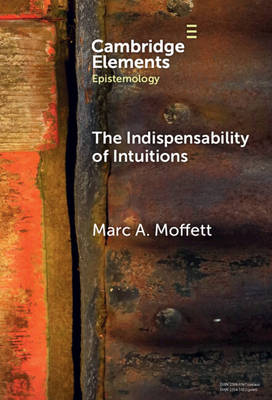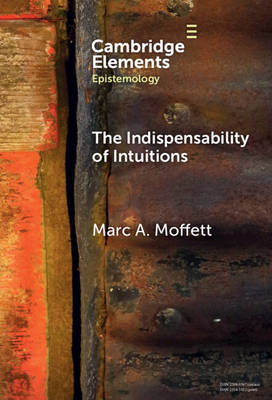
- Afhalen na 1 uur in een winkel met voorraad
- Gratis thuislevering in België vanaf € 30
- Ruim aanbod met 7 miljoen producten
- Afhalen na 1 uur in een winkel met voorraad
- Gratis thuislevering in België vanaf € 30
- Ruim aanbod met 7 miljoen producten
Zoeken
€ 112,95
+ 225 punten
Uitvoering
Omschrijving
The idea that human beings possess a substantive source of non-experiential evidence (intuitions) has been ridiculed as mystical or hopelessly mysterious. This Element argues that intuitions are neither. On the contrary, it argues that intuitions are a ubiquitous and familiar feature of our cognitive lives and that their evidential status is no more puzzling than that of any other source of evidence. The author does not, however, parry this accusation by assimilating intuitions to less metaphysically uncomfortable entities. Assimilation is futile. Rather, they treat intuitions as their own kind of sui generis intentional states. But unlike many treatments of intuition, the focus is not on their role in the "a priori" disciplines. Instead, the author argues that eschewing intuitions undermines our knowledge on a very broad scale; they are epistemically indispensable. This Element constitutes a sustained argument for this conclusion.
Specificaties
Betrokkenen
- Auteur(s):
- Uitgeverij:
Inhoud
- Aantal bladzijden:
- 72
- Taal:
- Engels
- Reeks:
Eigenschappen
- Productcode (EAN):
- 9781009544412
- Verschijningsdatum:
- 13/11/2025
- Uitvoering:
- Hardcover
- Formaat:
- Genaaid
- Afmetingen:
- 152 mm x 229 mm
- Gewicht:
- 267 g

Alleen bij Standaard Boekhandel
+ 225 punten op je klantenkaart van Standaard Boekhandel
Beoordelingen
We publiceren alleen reviews die voldoen aan de voorwaarden voor reviews. Bekijk onze voorwaarden voor reviews.







